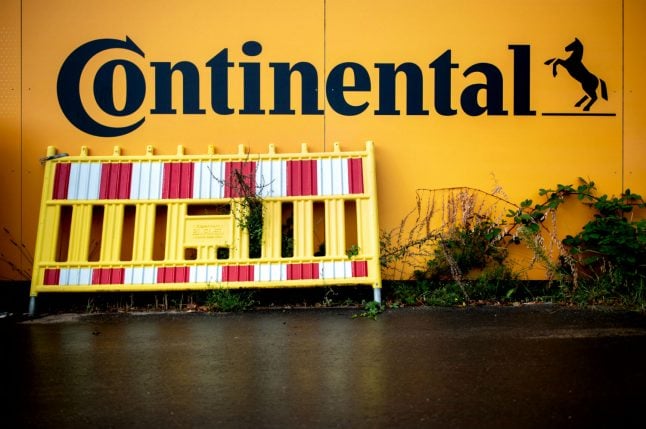Of the total, thousands of jobs are under threat in Germany.
The action comes amid a stuttering global car market and a weaker demand for combustion engines.
The jobs cull affecting Germany, Italy and the US would support Continental's “urgently needed technological transition and thus the strengthening of our competitiveness and future viability”, CEO Elmar Degenhart said in a statement.
Around 520 jobs will be axed when Continental shuts its site in Roding, Bavaria. That site, which makes hydraulic components for petrol and diesel engines, is set to close its doors in in 2024.
Meanwhile, in Limbach-Oberfrohna, Saxony, another 750 jobs are under threat after manufacturing of diesel injection components ends in 2028. And a further 2,200 jobs in Babenhausen in the central state of Hesse will also go.
In Pisa, Italy, 750 jobs are under threat because production of petrol engine components will cease by 2028, Continental said.
Elsewhere, the company said a further 720 jobs will be lost in the US city of Newport News, where production on hydraulic components for gasoline engines will end in 2024.
The latest round of job cuts come on top of a cull announced in September that will see Continental scrap 650 jobs in North Carolina and 270 in Malaysia.
Continental, with a global workforce of 240,000 people, stressed in its statement that some employees would be offered a chance to retrain “for other tasks” to find alternative roles in the group.
As The Local reported, Continental is undergoing a massive restructuring and by 2029, a total of 8,000 jobs will be affected in Germany.
However, not all of those jobs will disappear; some will be shifted between sites or reassigned to new activities, Continental said in a statement.
READ ALSO: Continental to cut thousands of jobs in Germany through massive restructuring
Trade wars, Brexit and technology
Germany's massive car industry – with 800,000 jobs and almost five percent of national output – has suffered as trade wars have intensified and the threat of a no-deal Brexit has grown.
Meanwhile far-reaching transformations of the sector, including electrification and automated driving, require enormous investments in new technology.
READ ALSO: Germany boosts support for electric cars with cash bonuses and a million charging points



 Please whitelist us to continue reading.
Please whitelist us to continue reading.
Member comments